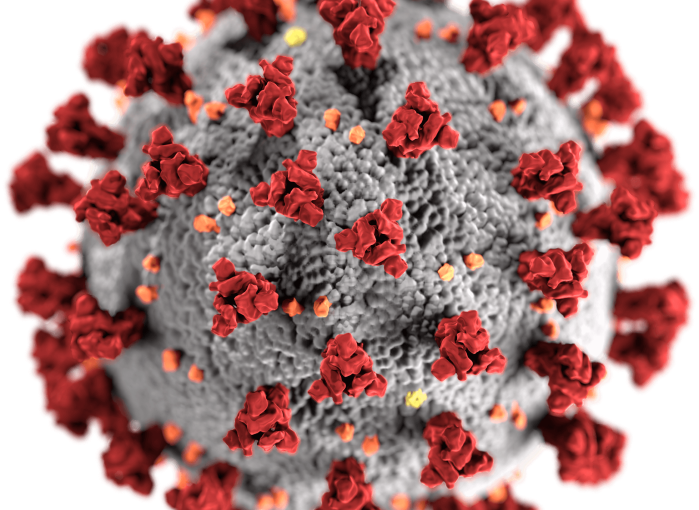
It was January when we first heard reports of a so-called ‘Deltacron’ variant of Covid, combining elements of the two previous variants, Delta and Omicron.
Scientists in France have since identified and sequenced cases of this variant to work out its genetic makeup, and it has now been officially confirmed as a ‘recombinant’ variant.
“Viruses change their sequence in two ways; by changing single bases (letters) like a spelling mistake, called mutation, and by swapping chunks from different variants which have differences due to previous mutations – like a whole sentence or stanza, called recombination,” Professor Ewan Birney, deputy director general of the European Molecular Biology Laboratory (EMBL), explained when Deltacron first attached attention in January.
Here’s what we know about the now confirmed Deltacron variant.
What is Deltacron and where has it been found?
Deltacron is a Covid variant that contains genes from both Delta and Omicron, two of the most infectious strains of coronavirus to date.
The first cases of the Deltacron variant were reported in early January in Cyprus by Leondios Kostrikis, a professor of biological sciences at the University of Cyprus and head of the Laboratory of Biotechnology and Molecular Virology.
However, some scientists believed it was the result of lab contamination.
Cases of the Deltacron variant have since been found in several regions of France and sequenced by virologists from L’Institut Pasteur, a global biomedical research institute in Paris, who confirmed the variant’s full genomic sequence to the international Covid database, GISAID, last Tuesday.
This means it’s been confirmed as a ‘recombinant’ variant in need of further investigation.
“Further investigations are needed to determine if these recombinants derive from a single common ancestor or could result from multiple similar recombination events,” the GISAID website stated, confirming genomes with a similar profile have been identified in Denmark and the Netherlands.
“This one is legit,” Aris Katzourakis, a professor of evolution and genomics at the University of Oxford commented on developments. “[It is] one to keep an eye on.”
Should we be worried in the UK?
The UK Health Security Agency said it was investigating a variant called “Delta x Omicron Recombinant (UK)”, but that it was not yet clear if it was linked to the French-based Deltacron.
Dr Etienne Simon-Loriere, a reseacher from L’Institut Pasteur, told the Guardian there could be several different recombinants of Delta and Omicron.
“The one we see in France and in Denmark/Netherlands look super similar and might be the same recombinant (with the same parental viruses) that have travelled,” he said.
“But the possible Delta-Omicron recombinants reported in countries including the UK and US appear to combine different pieces of their parental viruses, and therefore differ to the Deltacron seen in France.”
Maria van Kerkhove, Covid technical lead for the World Health Organisation (WHO) said her team were “tracking and discussing” the new variant, adding on Twitter that Covid recombinants were “to be expected”, given the current intense circulation of Omicron and Delta.
Dr Jeffrey Barrett, who previously led the Covid-19 genomics initiative at the Wellcome Trust Sanger Institute, echoed this. “This happens whenever we are in the switchover period from one dominant variant to another, and is usually a scientific curiosity but not much more than that,” he told the Guardian.
Meanwhile, Soumya Swaminathan, the WHO’s chief scientist, wrote on Twitter that further research and sequencing was needed.
We have known that recombinant events can occur, in humans or animals, with multiple circulating variants of #SARSCoV2. need to wait for experiments to determine the properties of this virus. Importance of sequencing, analytics & rapid data sharing as we deal with this pandemic https://t.co/2qmu6WS118
— Soumya Swaminathan (@doctorsoumya) March 8, 2022
Asked about the new variant, health secretary Sajid Javid has said: “We keep it under review but we have no concerns at all.”
He added: “The most recent one of concern has been Omicron but we have successfully navigated our way through that as a country, thanks to the response of the British people.”



